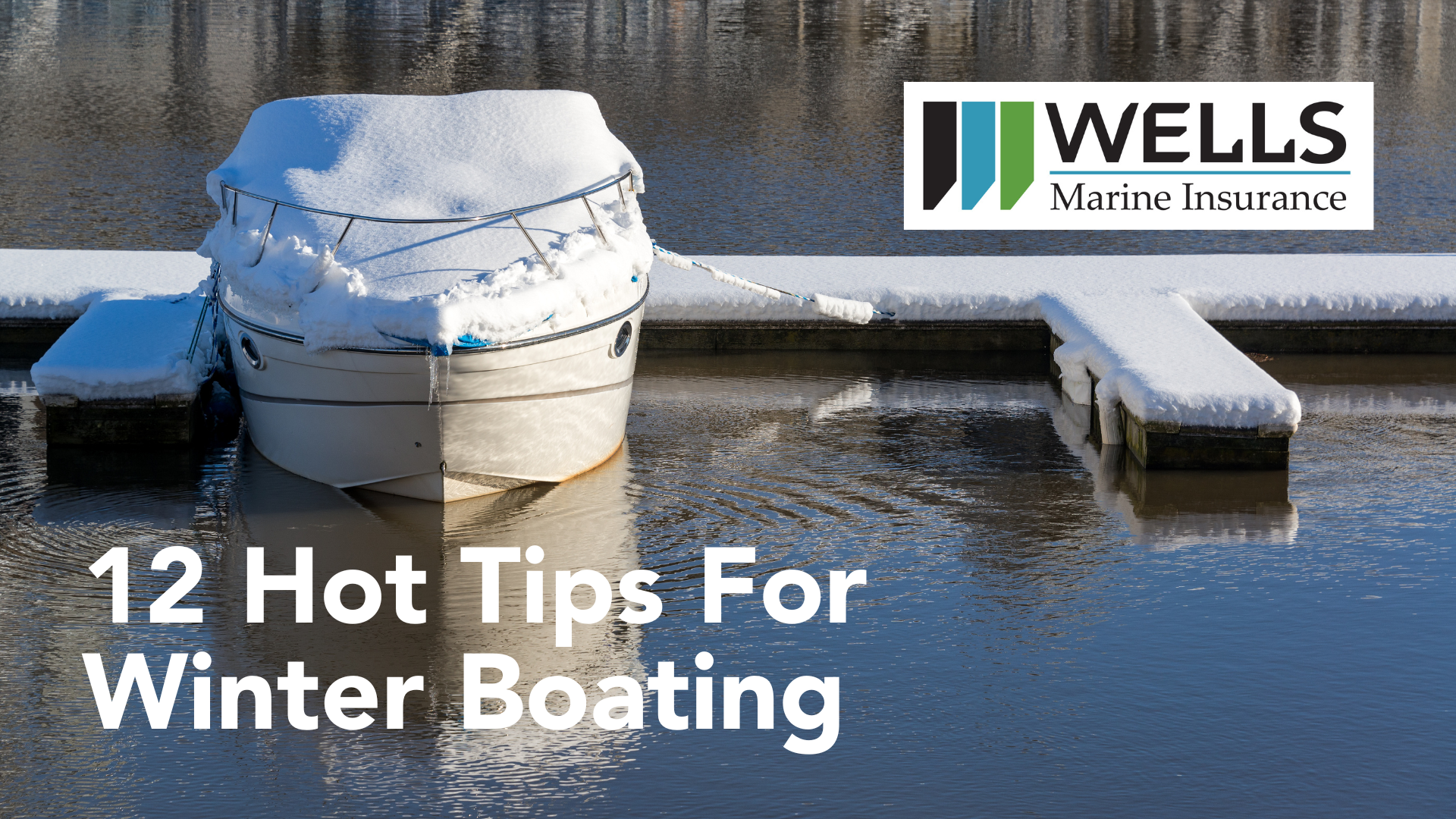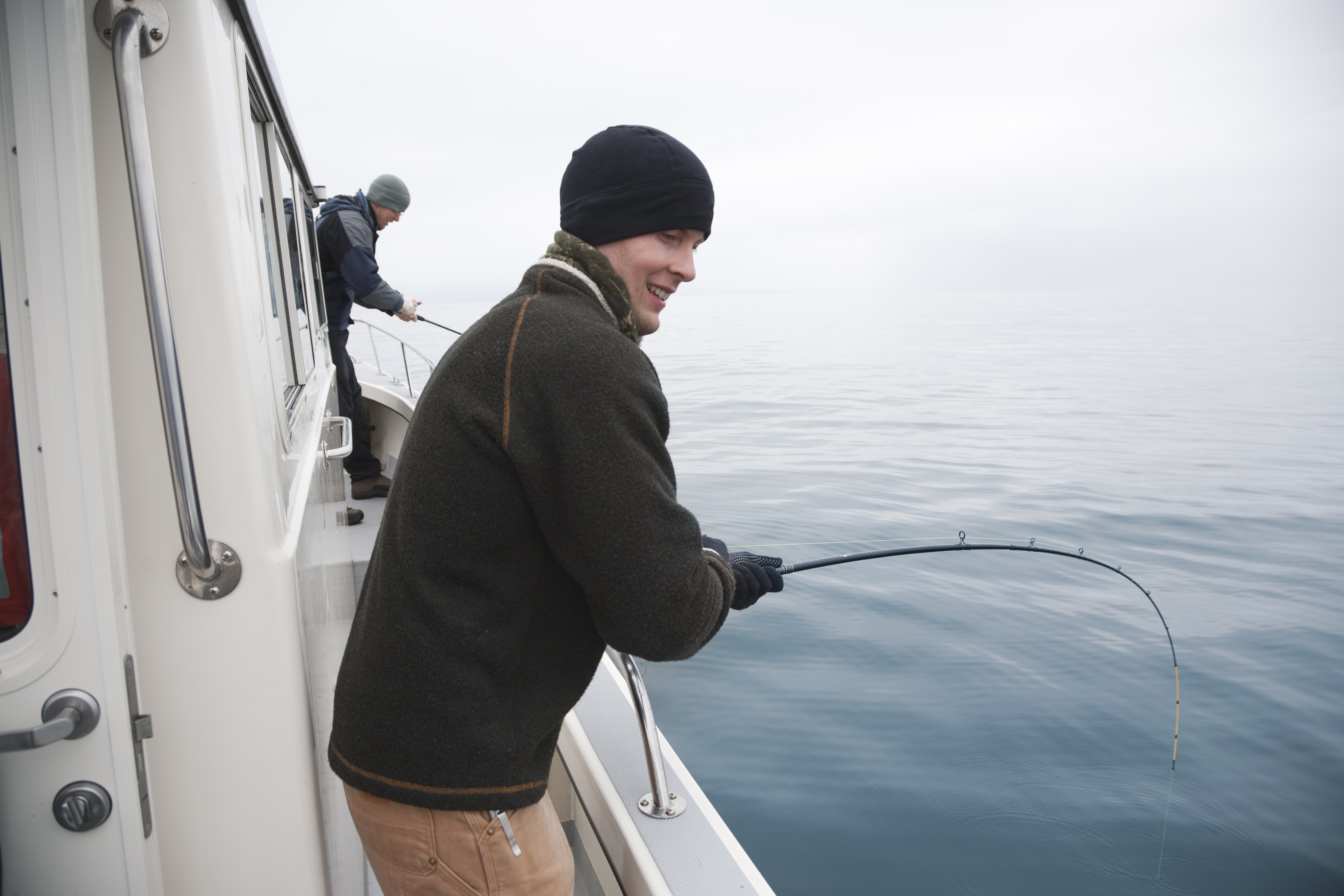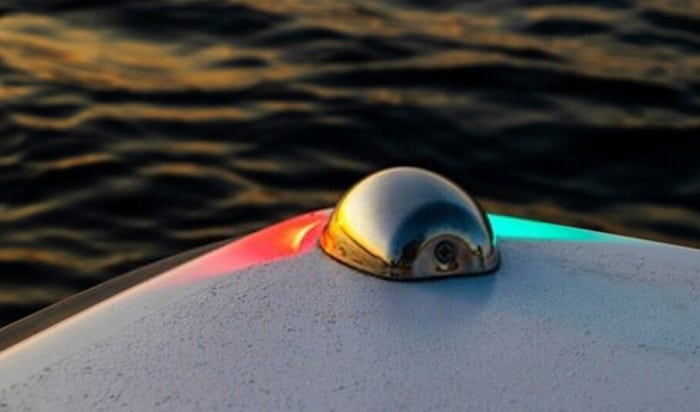12 Hot Tips to Take Advantage of Winter Boating

Extra Safety Precautions for Off-Season Boating
Boating during the off-season requires some extra precautions. A good rule of thumb for when to take additional safety measures is to add the air and water temperatures together. If that total is less than 100, it’s time to get serious about safety. For paddlesports or activities where you're more likely to get wet, use a threshold of 120 instead.
1. Wear a Life Jacket
We always recommend wearing a life jacket, but it’s especially important in colder weather. A life jacket provides warmth and, more importantly, helps you stay afloat if you fall overboard. It can also help preserve body heat while you wait for help, which may take longer during the off-season when fewer boats are on the water.
For frequent cold-weather boaters, consider a U.S. Coast Guard-approved float coat. These coats include closed-cell foam insulation to keep you afloat and protect against hypothermia. BoatU.S. fishing editor Lenny Rudow swears by his float coat: "My warmest winter coat is my float coat, hands down."
Note: Many inflatable life jackets aren’t recommended for temperatures below 40°F, as they inflate more slowly and provide less buoyancy. Always check the manufacturer’s guidelines for your specific model.
2. Dress for the Conditions
Even if the air temperature feels mild, if the water is cold, dress appropriately. Remember: "Dress for the water temperature, not the air temperature." Use synthetic fabrics or merino wool for your base layer—cotton is a no-go because it loses insulation when wet and takes forever to dry. For paddlesports or activities like dinghy sailing or windsurfing, wear a wetsuit or drysuit.
Bright outer layers are also recommended for visibility in case you need to be rescued. Don’t skimp on gloves or boots—opt for waterproof, insulated options to keep your extremities warm.
3. Space Blankets for Emergencies
Add space blankets to your first-aid kit. These lightweight, compact blankets trap body heat and are waterproof and windproof—crucial if you end up stranded or waiting for assistance.
4. Check Navigation Lights and Sound Devices
Before heading out, check your boat’s navigation lights, especially since fog and reduced visibility are common in colder months. Be sure your sound-producing devices (like a horn or whistle) are functional too.
5. Charge Your Batteries
Cold weather drains battery power, so ensure your marine batteries, including any accessories like a VHF radio or cell phone, are fully charged before heading out. Keep a portable power bank as a backup, and store it in a warm pocket to keep it charged.
6. Know the Marine Forecast
Conditions can change rapidly on the water, especially in fall and winter. Strong winds and cooling sea surfaces can create strong currents and waves. Always check the marine forecast before you leave.
7. If You Fall Overboard
- Stay calm and catch your breath. The cold shock can cause hyperventilation.
- Remove heavy boots or shoes to avoid being weighed down.
- Adopt the H.E.L.P. position: Cross your arms, draw your knees up, and tuck them toward your chest to conserve heat.
- Stay with the boat or anything that floats (like a cushion or cooler) to increase your chances of being spotted.
8. Communication is Key
Ensure your VHF radio is working and has your MMSI number programmed for emergency use. For an extra layer of security, consider adding a Personal Locator Beacon (PLB) for each passenger.
9. Bring Snacks & Drinks
Cold weather increases the calories your body burns to stay warm. Keep non-alcoholic drinks and snacks on board to stay hydrated and energized, especially if you end up waiting for assistance.
10. Heater Safety
Portable electric heaters can be useful but are a fire hazard on boats. Opt for low-profile, boat-specific models. Never leave open-flame heaters unattended, and be mindful of carbon monoxide risks when using any type of heater. Whatever you do, do not place them in the engine room of your boat.
11. File a Float Plan
Always let someone know where you're going and when you expect to return. This is crucial in colder months when help might be slower to arrive.
12. Check Availability Before You Go
Before heading out, check to make sure essential services like fuel or pump-out stations are open. Many businesses operate on limited hours or winter schedules.
Protect Your Boat and Crew with Wells Marine Insurance
Off-season boating brings its own set of challenges, and having the right insurance coverage can make all the difference in keeping you safe and your boat protected. At Wells Marine Insurance, we specialize in comprehensive coverage that’s tailored to your boating needs, no matter the season. Whether you’re braving colder waters or navigating unexpected weather conditions, we offer policies that give you peace of mind on the water.
Don’t leave your boat’s safety to chance. Contact Wells Marine Insurance today to learn more about our customizable insurance plans and how we can help safeguard your adventures—whether in the off-season or all year round.


